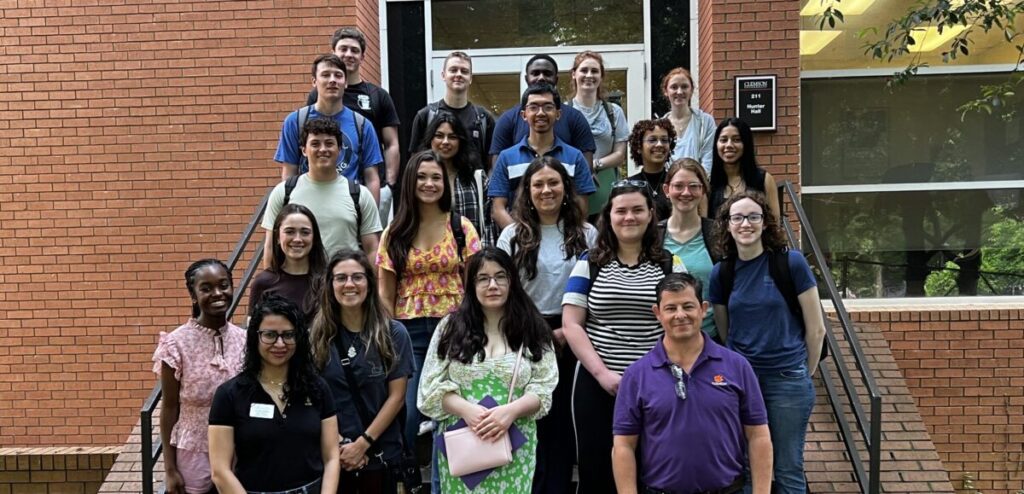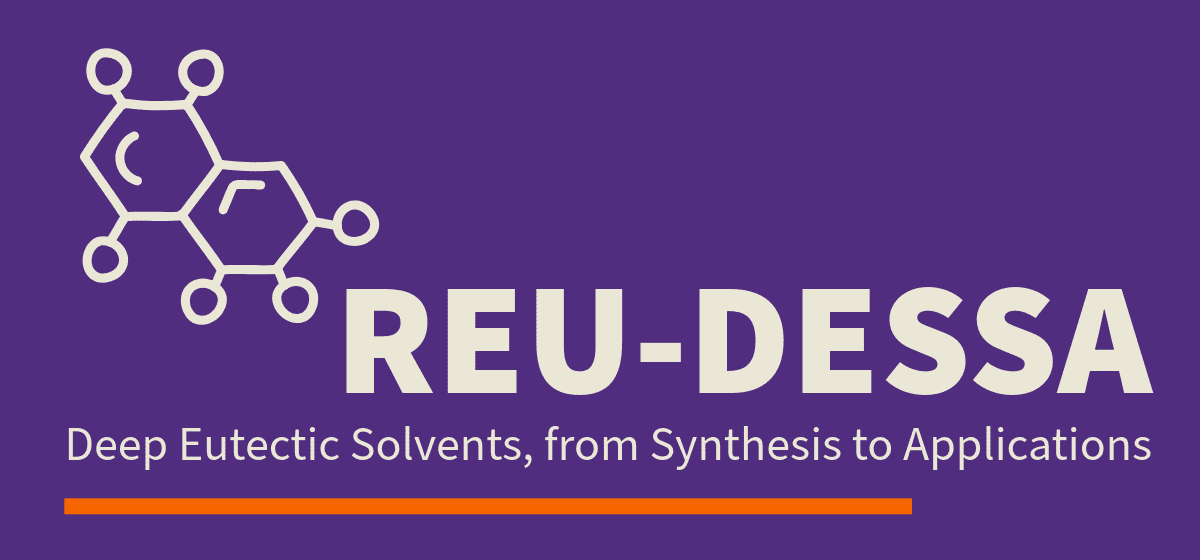Deep eutectic solvents (DES) are an emerging class of fluids, composed of specific ratios of two or three components, often in solid state, that lead to a material featuring a melting point that is significantly lower than the melting points of the individual components often below room temperature. From the chemical standpoint, they offer tunable physicochemical properties and broad compatibility with systems ranging from soft materials (enzymes and polymers) to metallic nanoparticles. While undergraduate students can easily recognize the green aspects of these solvents, that could replace traditional organic solvents and are applicable in a wide variety of industries targeting sustainable chemistry, DES are rarely discussed in the undergraduate curriculum. In general, only a few undergraduates are exposed to DES during research-oriented courses, as single universities do not have enough researchers to offer training experiences in this field. Aiming to address this shortcoming, this project features a collaboration of mentors working on a shared topic (rather than a shared location) that aims to provide a transformative experience for undergraduates, who will learn from each other. We hypothesize that this approach will result in a unique opportunity for all participants, allowing them to interact with some of the best researchers in the field and allowing mentors to forge collaborations with other researchers. We anticipate that the quality of the proposed activities, the scientific stature of the selected mentors, and the clear opportunities for collaboration between the groups will positively impact the scientific outcomes of the program. Considering that concepts linked to deep eutectic solvents are rarely discussed in the undergraduate curriculum, this program aims at supporting their education by allowing participants to select from 10 potential projects, ranging from machine learning and organic synthesis to interactions with proteins and cells. To maximize access to both talent and state-of-the-art facilities, projects located in various universities are available.

Projects available
DES Properties via Machine Learning
Interaction of DES with cells
X-panded polyiodides and DES
LEDs based on chiral DES
Stability of Aqueous Mixtures of NADES
DES for Wood Pulping
From Sweet Potato Vines to Lignin
NADES at the Multiomic Level
GUMBOS containing DES
Adsorption of PFAS onto hydrophobic DES
Leadership and Support offered
This program is directed by Drs. Carlos D. Garcia, Bill Pennington, and Tania I. Houjeiry (Coordinator) and is financed by the NSF – Division of Chemistry, award CHE-2446835 (2025-2028).
Our 10.5 weeks REU program will provide financial support to cover travel expenses (flight and ground transportation to the selected location, up to $500), on-campus housing (up to $2475), a meal supplement (up to $1500), and a scholarship ($7350). The REU grant will not pay for any other expense. REU participants must be U.S. citizens or permanent residents, have a minimum GPA of 3.0 (transcript to be provided), and have a strong background in Chemistry (or equivalent training obtained through work or research experience).
Applications (including reference letters) should be submitted by April 15, 2026. Early applications may be considered for early admission to the program and late applications will be considered until all spots are assigned.
Former REU Programs

IMPlanting the ResEarch Seed in Students (IMPRESS)
This project aimed to provide an experience to transform the perception of undergraduates from that of students to that of active researchers. To accomplish this, REU students in our program performed research in projects linked to Materials with Targeted Functions: from fundamentals to applications. The selected areas allowed exposing participants to a broad research experience across disciplines and to take advantage of the concept of cluster mentoring. As a new element, also steaming from comments from past participants, the program also targeted social competencies.
Advanced Materials and Chemical Biology
As part of an on-going summer research experience for students, students performed research in the areas of Advanced Materials and Chemical Biology. In addition they were provided opportunities for personal and professional growth and development through numerous workshops, seminars, and panel discussions on topics ranging from the fundamentals of instrumentation techniques, research in the various disciplines of chemistry, career planning and preparation, and the role professionals in sciences.

